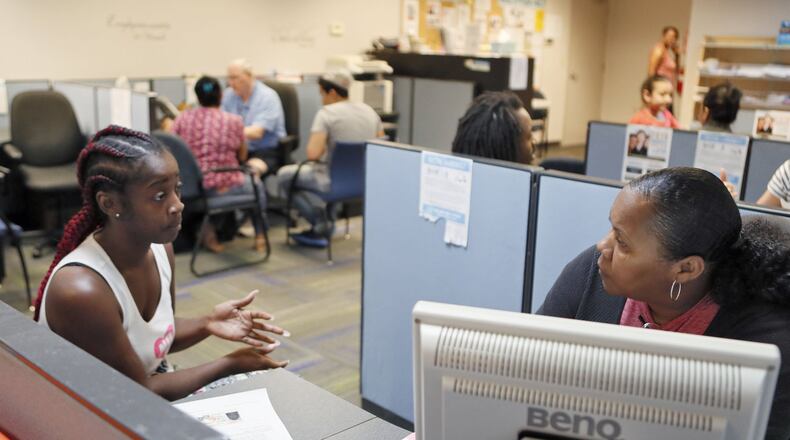Gwinnett County’s homeless population will be counted next week for the first time since the county’s last homeless shelter shut its doors.
The Gwinnett Coalition for Health and Human Services is leading the effort on the point-in-time count, which is conducted with 70 different agencies and hundreds of volunteers every two years.
More than 600 volunteers will be dispatched to all corners of Gwinnett County from Jan. 28 to Jan. 31. Homeless population counts are regularly conducted by cities and counties across the country in order to assess who makes up that population and what they need, said Keith Fenton, the Gwinnett Coalition’s chief operating officer.
“This will help us understand how many are homeless, why are they homeless and what the circumstances are that led them to be homeless,” Fenton said.
READ | Gwinnett's only emergency homeless shelter suspends operations
MORE | Can Gwinnett create a model for addressing suburban homelessness?
Gwinnett’s only emergency homeless shelter — which had only 11 beds — closed in September. The shelter was operated by the nonprofit Family Promise of Gwinnett. The county has no publicly funded homeless facility, but last year the county earmarked $500,000 in its budget to address the problem of homelessness.
In addition to people who are living “unsheltered” — in tents, under bridges, or otherwise outdoors — the count also includes some people who are living in extended-stay hotels, which is where some go when they cannot afford more permanent housing. To determine who in those hotels is “facing homelessness,” the Coalition members interview hotel residents individually, Fenton said.
Putting a number on the homeless population in Gwinnett County is difficult, Fenton said. The last point-in-time count, conducted in January 2017, counted 263 homeless people, according to the Georgia Department of Community Affairs. But even with hundreds of volunteers over multiple days, it's extremely difficult to get a full count of the homeless population, Fenton said.
“Nobody really knows the exact numbers of homelessness in Gwinnett County,” he said.
Fenton estimates that between 8,000 and 9,000 people in the county are “faced with homelessness issues.” That includes people who are currently homeless and those “on the verge of homelessness,” Fenton said. Those “on the verge” are not included in the point-in-time count, as they are not yet actually homeless.
The 2017 Department of Community Affairs study said that homelessness was on the decline in Georgia, going from 7,651 people in the 2013 count to 3,716 in 2017. But Fenton says it’s on the rise in Gwinnett, with Gwinnett’s continued growth contributing.
“The population of Gwinnett is nearing a million people, and with that comes the lack of affordable housing in our community,” Fenton said. “I think that is a significant reason why people are becoming homeless.”
The count will help the Gwinnett Coalition and its 70 partner organizations and agencies, including the Partnership Against Domestic Violence and the HomeFirst Initiative, assess what is needed most to help people who are currently homeless or who are facing homelessness, Fenton said. Services are “limited” in the county and many people are often referred to resources in the city of Atlanta, he said.
“But even then, you have to factor in most people who are homeless don’t have transportation. How can they access those services?” Fenton said. “We have to serve them in our community effectively and comprehensively.”
The Coalition is still in need of volunteers to assist in the count. Those interested can contact Fenton directly at keith@gwinnettcoalition.org or call the organization at 770-995-3339.
Like Gwinnett County News on Facebook | Follow us on Twitter and Instagram
Stay up to the minute with breaking news on Channel 2 Action News This Morning
About the Author
The Latest
Featured


